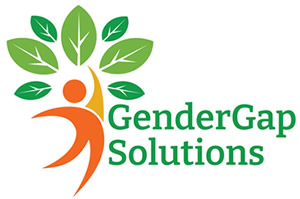 Participating as a panelist at a side event titled “Enhancing Community Climate Resilience and Gender Responsive Livelihood in Climate Induced Conflict Areas in Kenya” at the UNFCCC COP28 in UAE-Dubai was a profound honor, affording me the opportunity to delve into the critical intersections of Gender, Climate Change, and Security. During the event, I shed light on the persistent challenges faced by Northern Kenya, a region marked by recurrent droughts and the current onslaught of devastating floods.
Participating as a panelist at a side event titled “Enhancing Community Climate Resilience and Gender Responsive Livelihood in Climate Induced Conflict Areas in Kenya” at the UNFCCC COP28 in UAE-Dubai was a profound honor, affording me the opportunity to delve into the critical intersections of Gender, Climate Change, and Security. During the event, I shed light on the persistent challenges faced by Northern Kenya, a region marked by recurrent droughts and the current onslaught of devastating floods.
This provided a platform to emphasize the intrinsic link between environmental challenges and the pressing issue of insecurity, underlining the urgent need for comprehensive strategies. The environmental upheavals, particularly recurrent droughts and the current floods, extend beyond disrupting livelihoods and infrastructure, as they tragically claim lives.
This reality underscores the severity of the situation and accentuates the importance of addressing climate-related challenges not only as environmental concerns but also as critical elements of broader security issues. One of the key points highlighted during the panel discussion was the disproportionate impact of climate change on specific demographics, including women, youth, children, people living with disabilities and marginalized communities.
Despite the vulnerability of these groups, the allocation of local-level climate financing remains dismally low, constituting less than 10% of the total climate finance committed from international climate funds. To put this into perspective, IIED researchers reported that less than 10% of the US$17.4 billion total committed for climate finance was directed to local-level activities between 2003 and 2016. This scarcity of financial resources impedes the effective implementation of climate change projects that could otherwise contribute significantly to local resilience and adaptation efforts.
Evidence suggests that directing climate finance to the local level, as part of a coherent approach to climate action, yields more effective, efficient, and sustainable results. It enhances the impact of each dollar disbursed, ensuring that the allocated resources contribute meaningfully to climate resilience, adaptation, and mitigation initiatives.
The enriching experience of sharing the platform with distinguished individuals from various organizations, including the Ministry of Interior and National Administrations in Kenya, Kenya Climate Change Working Group (KCCWG), Africa Centre for Sustainable and Inclusive Development (Africa CSID), Diakonia, International Alert, and GenderGap Solutions, highlighted the imperative for collaborative efforts. Addressing the multifaceted challenges posed by climate change and its security implications requires a united front, where diverse expertise and perspectives come together to develop comprehensive and effective solutions. This collaborative spirit is crucial for navigating the complexities of climate-related issues and fostering sustainable development in the face of environmental challenges.


Hi, this is a comment.
To get started with moderating, editing, and deleting comments, please visit the Comments screen in the dashboard.
Commenter avatars come from Gravatar.